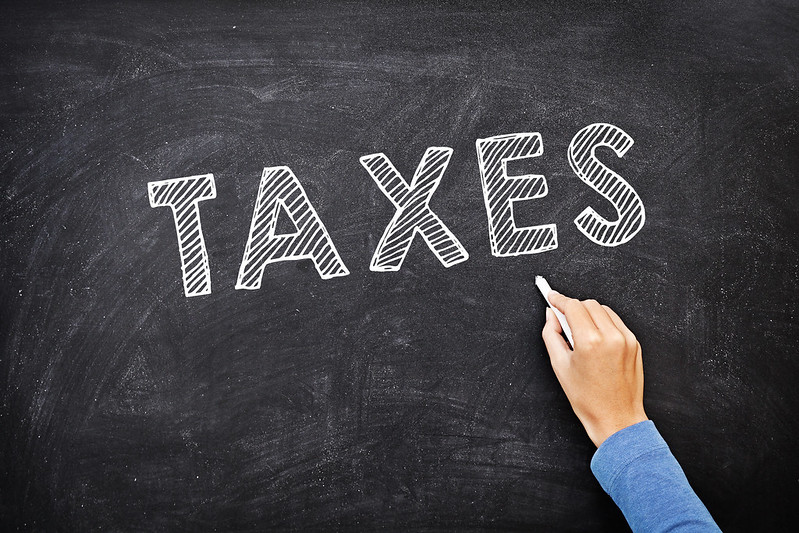A sale of public assets cannot be presumed to be free of State aid when bidders are not treated equally. Introduction When the state sells a company it owns, there is a presumption that no State aid benefits either the buyer or the company that is sold if the sale is open transparent, non-discriminatory, unconditional and the chosen buyer is […]
State Aid Law
Blog
State Aid Uncovered Blog
In Lexxion’s State Aid Uncovered blog, Prof. Phedon Nicolaides publishes weekly critical analyses of recent State aid judgments and decisions. Each post presents the key points of a court judgment or EU Commission decision, places it in the context of similar case law or practice, assesses the underlying reasoning and highlights any inconsistencies or contradictions.
Guest contributions from other State aid experts will also be published on the blog at irregular intervals to complement the content of the blog posts.
- Equal Treatment ×
28. September 2021 |
State Aid Uncovered
by Phedon Nicolaides
10. November 2020 |
State Aid Uncovered
by Phedon Nicolaides
An official’s statement can be imputed to his authority if it can be reasonably assumed that the official speaks on behalf of the authority. Introduction It is often asked by national officials how much credence they should give to assurances by Commission officials in the absence of a formal Commission decision and what is the legal value of such assurances. […]
17. March 2020 |
State Aid Uncovered
by Phedon Nicolaides
Progressive turnover taxes are not contrary to the freedom of establishment or the right of equal treatment. Introduction Recent cases involving “turnover” taxes have sparked a debate in the literature and on the conference circuit not only because they raise novel issues but also because of their implications for other taxes which are being mooted by European governments. As Advocate-General […]
29. June 2015 |
State Aid Uncovered
by Phedon Nicolaides
The standard of proof of whether a measure is selective depends on whether that measure is a scheme or a grant of individual aid. Measures providing for exemption are by definition selective. Measures that impose additional charges for the purpose of maintaining equality between operators are not necessarily selective even if the responsible authorities retain a degree of discretion in […]
- Equal Treatment ×
28. September 2021 |
State Aid Uncovered
by Phedon Nicolaides
A sale of public assets cannot be presumed to be free of State aid when bidders are not treated equally. Introduction When the state sells a company it owns, there is a presumption that no State aid benefits either the buyer or the company that is sold if the sale is open transparent, non-discriminatory, unconditional and the chosen buyer is […]
10. November 2020 |
State Aid Uncovered
by Phedon Nicolaides
An official’s statement can be imputed to his authority if it can be reasonably assumed that the official speaks on behalf of the authority. Introduction It is often asked by national officials how much credence they should give to assurances by Commission officials in the absence of a formal Commission decision and what is the legal value of such assurances. […]
17. March 2020 |
State Aid Uncovered
by Phedon Nicolaides
Progressive turnover taxes are not contrary to the freedom of establishment or the right of equal treatment. Introduction Recent cases involving “turnover” taxes have sparked a debate in the literature and on the conference circuit not only because they raise novel issues but also because of their implications for other taxes which are being mooted by European governments. As Advocate-General […]
29. June 2015 |
State Aid Uncovered
by Phedon Nicolaides
The standard of proof of whether a measure is selective depends on whether that measure is a scheme or a grant of individual aid. Measures providing for exemption are by definition selective. Measures that impose additional charges for the purpose of maintaining equality between operators are not necessarily selective even if the responsible authorities retain a degree of discretion in […]
- Equal Treatment ×
28. September 2021 |
State Aid Uncovered
by Phedon Nicolaides
A sale of public assets cannot be presumed to be free of State aid when bidders are not treated equally. Introduction When the state sells a company it owns, there is a presumption that no State aid benefits either the buyer or the company that is sold if the sale is open transparent, non-discriminatory, unconditional and the chosen buyer is […]
10. November 2020 |
State Aid Uncovered
by Phedon Nicolaides
An official’s statement can be imputed to his authority if it can be reasonably assumed that the official speaks on behalf of the authority. Introduction It is often asked by national officials how much credence they should give to assurances by Commission officials in the absence of a formal Commission decision and what is the legal value of such assurances. […]
17. March 2020 |
State Aid Uncovered
by Phedon Nicolaides
Progressive turnover taxes are not contrary to the freedom of establishment or the right of equal treatment. Introduction Recent cases involving “turnover” taxes have sparked a debate in the literature and on the conference circuit not only because they raise novel issues but also because of their implications for other taxes which are being mooted by European governments. As Advocate-General […]
29. June 2015 |
State Aid Uncovered
by Phedon Nicolaides
The standard of proof of whether a measure is selective depends on whether that measure is a scheme or a grant of individual aid. Measures providing for exemption are by definition selective. Measures that impose additional charges for the purpose of maintaining equality between operators are not necessarily selective even if the responsible authorities retain a degree of discretion in […]







